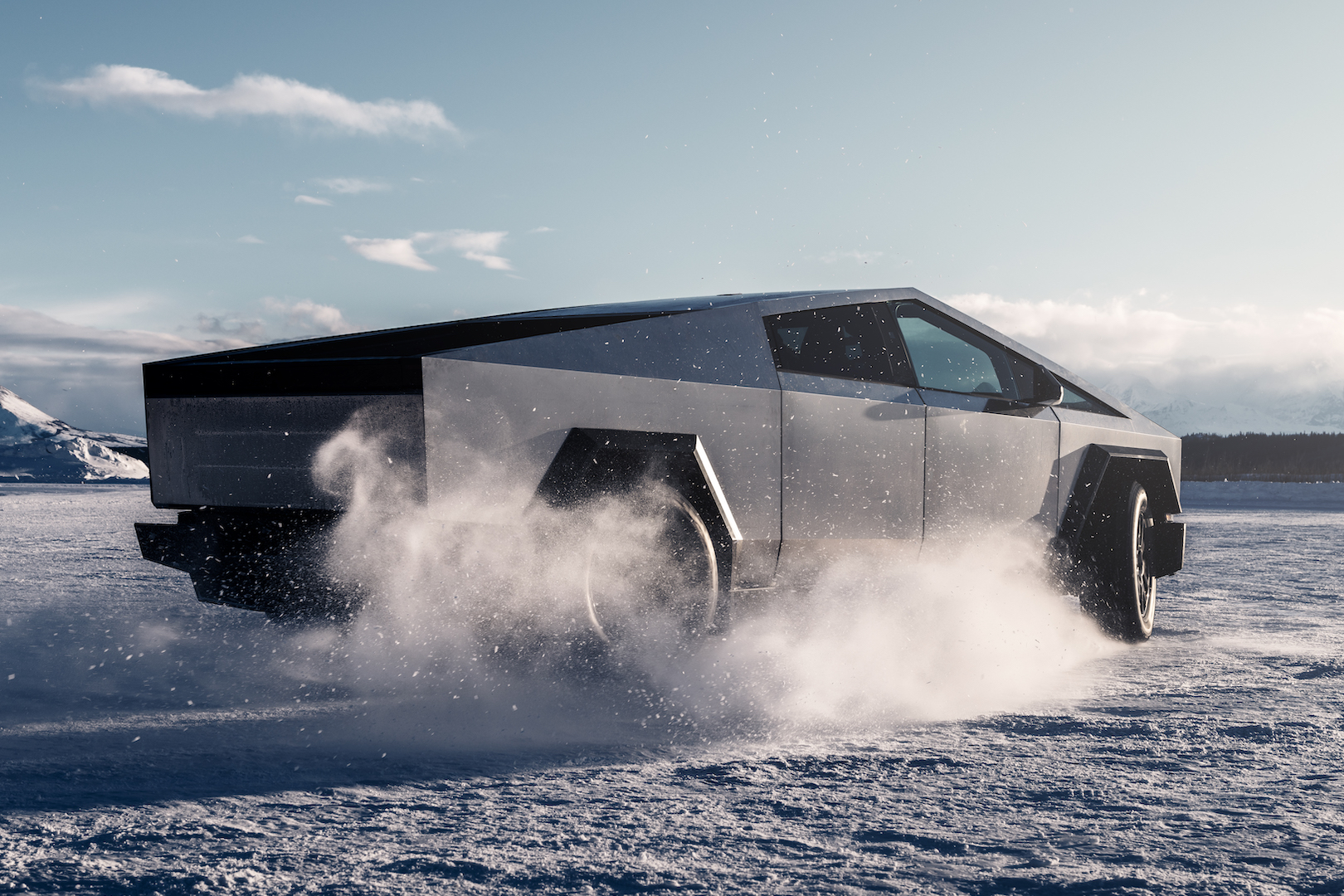

Excessive tire wear is the condition suffered by performance cars and electric vehicles. Blame it on weight or power or both. Either way, this isn’t new news. Yet, Tesla Cybertruck owners are crying foul when, after 6,000 miles, their Cyberbeasts have pigged out on most of the tire tread.
One member of the Cybertruck Owners Club says his barely three-month-old Cyber baby has just 6,251 miles on the odometer but is already needing a possible tire change. In his post, he writes that the low tread “has to be a manufacturing defect.” Adding, “These tires are specially made for the Cyberbeast so for them to be this bad is unforgivable. I have an appointment on Oct 1st to discuss this with Tesla.”

In the U.S., tire tread is measured in 32nds of an inch, and new cars typically have a tread depth of 10/32 or 11/32. Currently, Cybertruck tires are either Pirelli Scorpion ATR all-seasons or Goodyear Wrangler Territory RT all-terrains. When the owner measured his truck’s tires, they had tread depths of 4/32 in the front and 5/32 in the rear. According to TireRack, tires are considered worn out at 2/32 of remaining tread depth. This is not just a U.S.-only rule but also applies in most parts of the world.
TireRack suggests changing tires even sooner if you’re driving in an area that experiences wet or snow conditions. That would be at 4/32 and 5/32, respectively. The Cybertruck owner’s profile says he’s based in Colorado. Going by the standard, this Cybertruck chewed up half of its tire tread over the summer. But some trucks, SUVs, and winter tires might come with deeper new-tire tread depths. If that’s the case with the Tesla, that’s a big yikes but not a big surprise.
Rivian owners had similar complaints about premature tire wear. Yes, the vehicle’s weight played a role but so did “Conserve” mode, which is used to maximize range. But what the driving mode unintentionally does is put extra heft on the front wheels, and if used for extended periods, ruins the alignment by putting the tires in a negative camber.
Tesla vehicles have Chill Mode, which limits acceleration by affecting throttle response. So, instead of instant power and torque, propulsion has a smoother spooling effect. That could help with tread wear since who needs 845 horsepower on demand all the time? (Put your hands down.)
The Cybertruck owner admits to using Beast Mode “a few times” but insists the truck has only been driven on streets and highways. The truck has never been off-road or hit its top speed. Well, yeah, most trucks are used for basic daily driving rather than hauling.
The fact remains you’re moving around a nearly 7,000-pound vehicle. You can drive like a saint by minimizing hard braking and avoiding stop-and-go traffic, but the Cybertruck is still a three-ton angular block of rust-prone steel and misaligned panels. So, unlike Atlas, no set of tires can hold up the Cybertruck forever, least of all the roughly 50,000 miles for an average tire change.